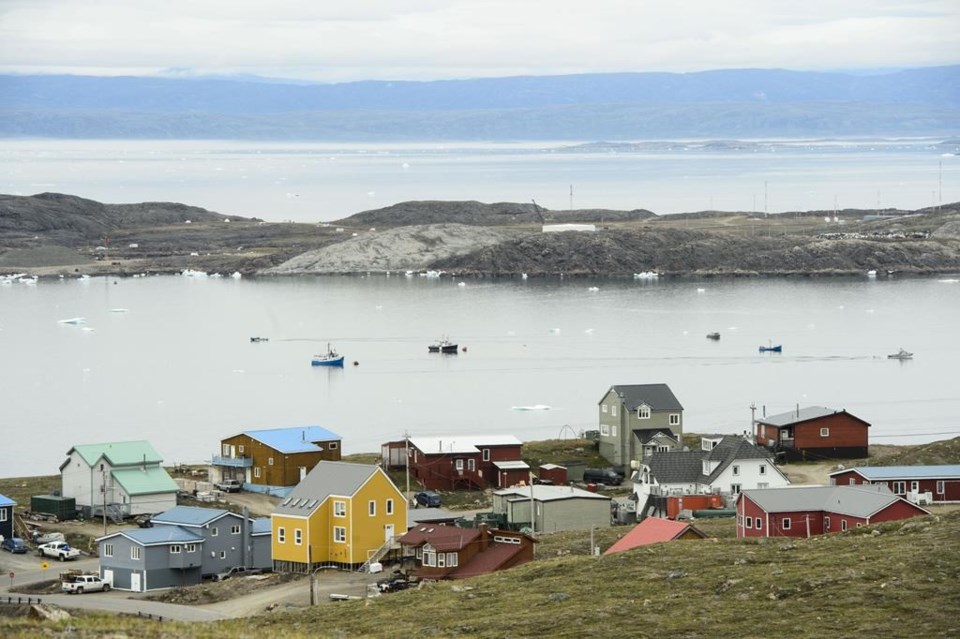IQALUIT, Nunavut — Nunavut filmmakers and videographers say construction of a large-scale TV and film production studio in Iqaluit will be "game changing" for the territory's film industry.
Iqaluit-based production company Red Marrow Media, co-founded by Stacey Aglok MacDonald and Alethea Arnaquq-Baril, is leading the project. They're currently developing a yet-untitled comedy series, commissioned by CBC, APTN and Netflix.
"It'll be the biggest show that's ever come out of Nunavut," Arnaquq-Baril said, adding she could not yet share many details.
"We're excited to spend time in our communities on screen making people laugh, which is not something we get to do on the global stage very often."
CBC said in a news release the series will centre on a young Inuk mother trying to build a new future for herself in a small Arctic town where everyone knows each other's business.
The studio will help make the show possible, as housing and infrastructure shortages can make finding places to shoot in Nunavut challenging, Arnaquq-Baril said. She said they have permission to film the series in the city's curling rink as a backup, but have promised to only do so for one season so as to not have a long-term impact on community programming.
Arnaquq-Baril has been working in the film industry for 20 years and her work includes the award-winning documentary "Angry Inuk."
She said at the start of her career, she watched other people tell stories about Inuit that did not reflect their real lives, joy and communities. She said the new studio will make it easier for Inuit to tell their own stories, involve the community in productions, develop skills and gain experience.
"The studio is not just going to make this show possible, it's going to make all kinds of things possible," she said. "It's adding to the infrastructure of the community instead of taking up existing space that is badly needed for many other things.
"What we hope is there will be other Inuit who are already working in the industry, but also Inuit who are considering it, (who) will see this career as an option because there's a space to make their dreams come true."
Jordan Konek, who worked at CBC as a video journalist and producer and now focuses on his video production company, Konek Productions, full time, agrees the studio will have wide-reaching benefits.
"I am a very strong advocate for having Inuit in the media business," he said.
"I am a believer in Inuit training by doing."
Konek said he's been most successful when he's trained other Inuit and involved them in projects, as they bring a unique perspective about stories that matter to people in Nunavut.
The Indigenous Screen Office recently announced it would provide $1 million in capital to support construction of the studio, which it said will cost more than $4 million. Inuk entrepreneur Cody Dean, who will be building the studio, will also contribute $1 million to the project.
The Indigenous Screen Office said the studio, which will take up 11,600 square feet of floor space, will have two sound stages and shared office space for up to four arts and culture organizations or companies.
Construction is expected to start later this summer.
This report by The Canadian Press was first published June 2, 2023.
This story was produced with the financial assistance of the Meta and Canadian Press News Fellowship.
— By Emily Blake in Yellowknife with files from Cassandra Szklarski in Toronto.
The Canadian Press

